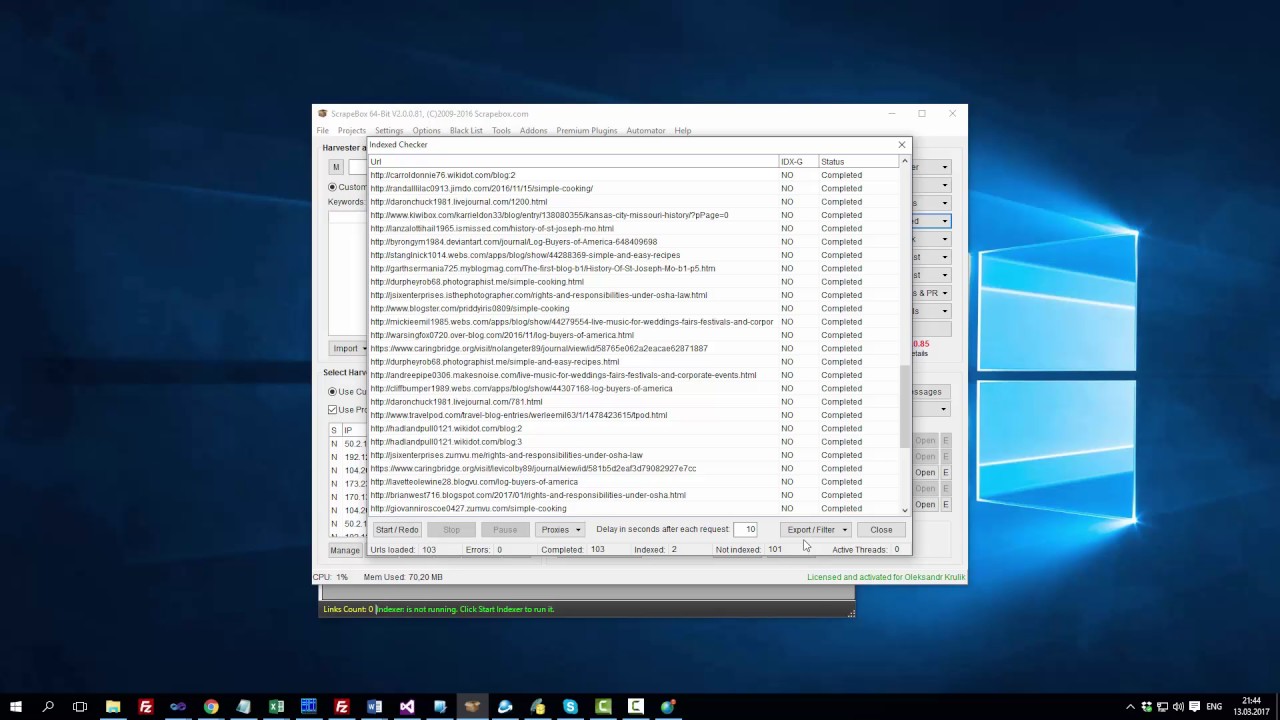It takes a long time for Google to index a page because of all the many factors at play.
In order to get Google to index your website quickly, you must use magical indexerand ensure that there are no blockages that hinder them from doing so.
Second, do everything you can to inform Google that you have new material and want your website to be indexed.
The quality of your contentand the absence of internal links could be a deal-breaker in the indexing process.
When all else fails, you can improve your website's popularity by promoting your content online and encouraging others to do the same.
First, your website must be indexed by the most popular search engine.
In this article, we'll teach you how toswiftly and efficiently get Google to index your site and how to avoid meeting bottlenecks.
What Does It Mean To Index Your Website?
In a word, search engines employ indexing to understand the purpose of your website and each page on it.
A search engine optimizationstrategy aids in the discovery of your website by Google, which then adds it to its index, links each page to relevant search terms, and displays it in search engine results.
Consider how a book index works: it's a record of important terms and information that offers context for a topic.
Search engine indexing accomplishes exactly this in the context of search results (SERPs).
Using a search engine does not give you access to the entire internet.
An index of all the web content compiled by a search engine.
You need to keep this in mind because not all of your online content will be picked up by a search engine.
In order for your website to be included in our index, you must take a few steps.
- In line with the most common searches.
- The homepage of the website can be reached quickly and easily through navigation.
- Linked to from other pages both within and outside of the domain of your website.
- Being able to be indexed without being "blocked" by the utilization of particular metatags (More on that later).
This is due to the fact that keywords are similar to a message that is sent to the search engine via a ping.
This message tells Google in a few words what your content is about, which may then be communicated back to search queries.
Before indexing a webpage, Google considers a number of different variables, one of which is whether or not the website contains keywords.
Other needs include the absence of "broken" pages or connections, as well as a web design that is not overly complicated to the point where it makes it difficult for a user to locate a particular page or comprehend the issue that page is attempting to address.
When it comes to indexing websites, Google takes a number of factors into consideration.
Why Use Magic Indexer?
Are You Fed Up with the Fact That Your Links Aren't Being Indexed?
Watch this video to learn about a powerful indexing strategy that can index up to 70–80 percent of all links that are supplied in only a few minutes.

Magic Indexer Pro
Why Should You Choose Magic Indexer Rather Than One Of The Other Backlink Indexers?
- High frequency of indexing. The average links indexing rate for Magic Indexeris between 70 and 80 percent.
- Indexing is done quickly. Within five to ten minutes, the majority of links will have been indexed.
- Simple Config. It only takes five minutes to install the program and get the links indexing process going.
- Combined With The Highest Quality. Backlink building software such as Magic Submitter, Senuke TNG, and GSA Search Engine Ranker are examples of the kind of software from which Magic Indexer is able to automatically obtain links.
How Does Indexing Work?
The process of indexing occurs when Google crawlers navigate from one link to another in search of new web pages.
In order to find the content and information they need, they either use a sitemap or past tracking data.
They then put this information through a series of processes and analyze it based on a variety of criteria, such as the level of quality of the content, keywords, meta tags, and the total number of words on a page.
After that, the information is saved so that it can be displayed in SERPs at a later time.
How Long Does It Take For Google To Index A Website?
When it comes to indexing websites, Google is not particularly picky.
In point of fact, it will index every site that satisfies the requirements.
Google's process of crawling a website can take anywhere from a few days to a few weeks, depending on the specifics of the website.
The amount of time it takes Google to index a website is contingent upon a number of factors, including the level of popularity enjoyed by the website in question, the extent to which it has been properly optimized, and the nature of its general architecture.
Mistakes that are all too common can affect whether or not Google will index a website.
To get ready, you should exercise patience, double-check the design of your website, and update the website only if you believe it is absolutely required.
How To Index Your Website On Google?
Google's Search Console verification is the first step.
In other words, you'll be able to prove to Google that you run the website.
Requesting Google to crawl your website's URLs is the next step.
Make sure that if your site just relocated, you are following Google's recommendations for relocating a site to ensure that your new location is indexed appropriately in the search engine.
Remember that Google won't index broken or difficult-to-read web sites, such as those marked by a "404" error code.
Optimizing a website also involves adding keywords to web pages, blog posts, and URLs, and archived content.
An excellent primer on how to optimize your website's content for search engines, as well as a reminder before seeking indexation, is provided in our SEO guide.
It takes effort and patience to get a website indexed.
Taking the time to optimize the website's content before submitting a request to Google will make the process easier.
People Also Ask
What Is Meant By Web Indexing?
Web information is added to a search engine's index through the process of website indexation.
"Crawling" websites for keywords and other signals that help search engines decide where and how to rank content is done via "crawling."
Indexed websites should have a content strategythat is easy to understand, easy to navigate, and easy to find.
What Is The Main Purpose Of Web Index?
The Web Index measures the extent to which the Internet is being used, benefited from, and had an impact on various parts of the world.
New primary data from an evidence-based expert assessment survey is incorporated into the Index.
What Is SEO Indexing?
Prior to a search, search engines organize material through an indexing process that allows for lightning-fast responses to queries.
It would take a long time for search engines to find relevant material by combing through individual web pages for keywords and subjects.
Why Is Indexing Important For SEO?
In order for search engines to view all of your vital pages, your site must have proper indexing in place. It's even capable of launching you to the top of the search results.
Conclusion
In order to keep your site's performance on track, you need to pay attention to its content, technical SEO, inbound links and use magic indexer.
However, if your site isn't being indexed, the rest of the SEOfeatures won't help much.
Be sure to check all the boxes and ensure that your website is promoted in the most effective way possible.
Don't forget to include relevant keywords on every page of your website!
The better Google can crawl, index, and rank your site, the better your results will be.
Making sure your technical SEOis up to par is also worth it.

